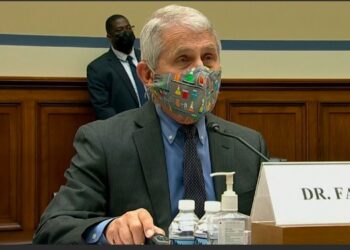As Texas reels from catastrophic flooding that claimed lives and overwhelmed infrastructure, the public spotlight has turned sharply toward Rainmaker, a private weather modification company specializing in cloud seeding. CEO Augustus Doricko appeared on Steve Bannon’s WarRoom to directly address mounting concerns and speculation surrounding the role of cloud seeding in the recent weather disaster.
Doricko opened with a heartfelt expression of grief for the victims in Texas, asserting unequivocally that Rainmaker had no involvement in the torrential rainfall that caused the flooding. According to Doricko, while Rainmaker does use cloud seeding to stimulate rainfall during drought conditions, the scale of its impact is minimal compared to natural weather events. "Our biggest mission to date only produced 10 million gallons of rain,” he explained, emphasizing that the recent storm dumped an estimated four trillion gallons over two days—a difference in magnitude that renders cloud seeding irrelevant as a cause.
Proactive Suspension & Regulatory Compliance
In a key point of defense, Doricko stated that Rainmaker suspended all operations on July 2, before the National Weather Service issued any flash flood warnings. This was done in alignment with Texas’s Department of Licensing and Regulation, which requires cloud seeding companies to cease operations when there’s a risk of excessive rainfall or reservoir overflow. "We acted before the state even asked us to,” Doricko told Bannon. "We want to help, not harm.”
Despite acting within legal and ethical bounds, Doricko expressed concern about the lack of comprehensive federal oversight. The only current federal requirement is a notification to NOAA under the 1972 Weather Modification Reporting Act. He advocated for reforms that would enable more transparency, improved tracking of results, and foster public trust through independent verification of impact.
Public Distrust and Legal Exposure
The timing of the flood—immediately following Rainmaker’s recent operations—has fueled conspiracy theories and public outrage. Calls for investigations and lawsuits are intensifying. Bannon raised the specter of Doricko spending years answering subpoenas and depositions if politicians choose to use the tragedy to advance regulatory or ideological agendas. Doricko didn’t dismiss the risk. "I understand the emotion, the pain, and why people want answers,” he said. "But scapegoating won’t bring healing or water security.”
He warned that overreaction could backfire, depriving drought-stricken regions of a tool that, when used responsibly, supports food production and aquifer replenishment. "We’re trying to prevent the collapse of the American West,” he stated, citing dwindling aquifers and overburdened rivers like the Colorado.
Moral and Theological Justification
When pressed by Bannon on the broader implications of modifying weather—a concept that touches on transhumanism, geoengineering, and spiritual ethics—Doricko turned to Scripture. As a Christian convert, he framed Rainmaker’s mission as one of stewardship, citing Genesis 1 and Psalms to argue that humanity is called to manage the Earth responsibly. "If we have the technology to help farms and cities survive, and we don’t use it, we’re abdicating our responsibility to God,” he said.
Still, Doricko acknowledged the cautionary tale of the Tower of Babel. "Man must not play God,” he said, committing to prayerful, humble leadership and calling for regulation to ensure cloud seeding is not misused.
At present, there is no evidence that Rainmaker’s cloud seeding contributed to the Texas floods. The company followed state protocols, halted operations before the storm, and has a track record of cautious deployment. Nonetheless, the political climate and grief-stricken public may lead to inquiries, oversight hearings, or lawsuits regardless of the facts.
Doricko’s transparent media appearances may help insulate Rainmaker from baseless allegations. However, as climate disasters intensify and distrust in institutions grows, technologies like cloud seeding—however small in scale—are likely to remain controversial. The balancing act between innovation, moral responsibility, and public accountability is just beginning.





